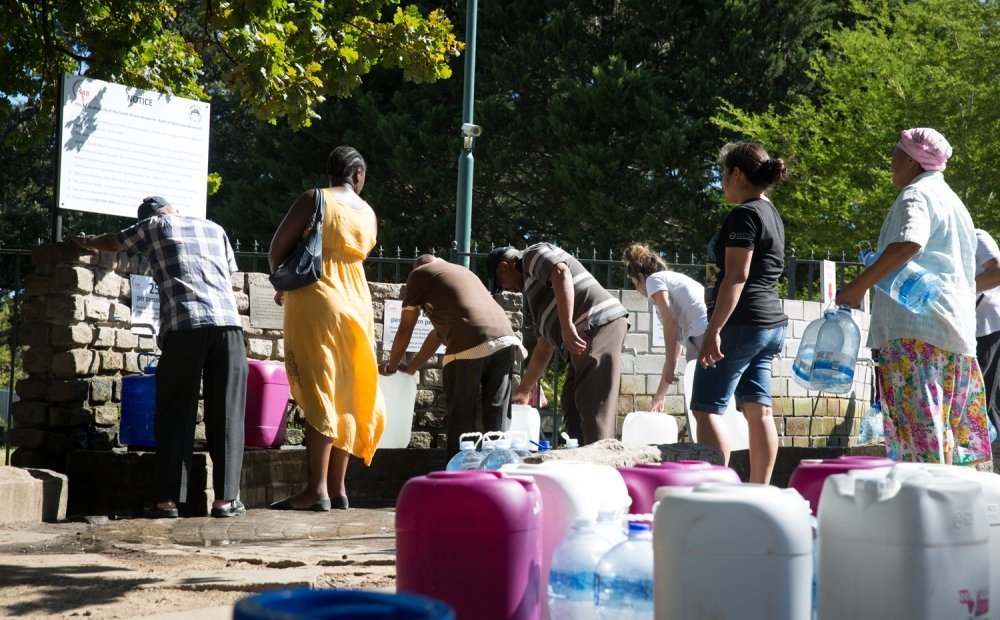Ground Truth Briefing | Avoiding a Water Crisis: What’s Next for Cape Town — and Beyond?

Intense drought in South Africa’s Western Cape Province has led the world-renowned city of Cape Town to the brink of “Day Zero” — the date at which residents would be forced to collect strictly rationed water supplies from shared distribution taps. Water conservation efforts have so far prevented a massive water shutdown, but the city’s rapid population growth and reliance on surface water dams makes it particularly vulnerable to lower precipitation levels.
As the first major industrialized city to face such water shortages, Cape Town serves as a harbinger of the increasingly complex environmental challenges that are likely to arise in other fast-growing cities as climate change intensifies.
In this Ground Truth Briefing, experts and reporters in Cape Town and beyond discussed the critical issues surrounding the city’s looming water crisis and lessons learned for other urban areas facing water shortages.
Selected Quotes
Mary Galvin
“What has been striking to me is that the government now has a draft master plan that shows that in 12 years, [demand] will outstrip supply in South Africa by 17 percent. So this has been a wake-up call in South Africa about what’s needed – not just in Cape Town, but in other provinces that are facing the same or even more extreme challenges… It’s been a wake-up call to what keeps getting referred to as a ‘new normal.’”
“Cape Town creates a really important role in getting public attention to new realities of climatic changes [and] to needs for strengthening water-management systems… But then, from my position, this is set atop a situation of inequality and poor governance. So it’s not just a technical issue.”
“This emphasis on availability and scarcity sort of puts us away from broader access questions, which is also key to water security. When I think of access questions, I think in particular of the situation in South Africa, with such growth inequality. South Africa competes with Brazil as the most unequal country in the world, and I think this year, South Africa won.”
Eric Viala
“I was, I think, quite impressed with the way Cape Town has handled water-monitoring and the information around the crisis. We always say [that] you can’t manage what you don’t measure, so I think it’s important to emphasize the critical initial task of monitoring water – where it is, quantity and quality – and then, informing the public.”
“It’s high time to look at demand-management. It’s high time to look at how are people using water, how are people wasting water. I commonly say [it], and sometimes people get a bit annoyed, but water-users, we cause water issues out of ignorance and self-interest… At the end of the day, we should look at changing practices and behavior.”
“We will have more and more events like what happened in Cape Town as populations grow and water-demand grows… We don’t know when those droughts will happen [and] we are not even able to predict what will be the probability of those events happening... There is not enough data.”
Brett Walton
“From first glance, you wouldn’t really know that there’s an emergency. Parks are green, street life goes on as it usually would. There are signs and posters around the city that make it very clear to save water… [but] look a little deeper [and] it’s very clear that people are reacting and have changed.”
“The division comes from the fact that [Cape Town] is a pretty economically divided city. You have some wealthy residents that are drilling their own personal wells so that they can get off the grid, so to speak… Those are individual coping strategies. Citywide, the main strategy has been ‘use less.’ The city found out early on that increasing supply during this drought wasn’t going to happen.”
“There had been talk of avoiding ‘Day Zero,’ or the day with zero water, since early last summer. Then the city adopted a kind of messaging in its communication; I think the branding around ‘Day Zero’ is a good logo [and that’s] what attracted international attention – and also the fact that media attention focused on the people who were being deprived.”
Speakers
Moderator

Hosted By

Environmental Change and Security Program
The Environmental Change and Security Program (ECSP) explores the connections between environmental change, health, and population dynamics and their links to conflict, human insecurity, and foreign policy. Read more
